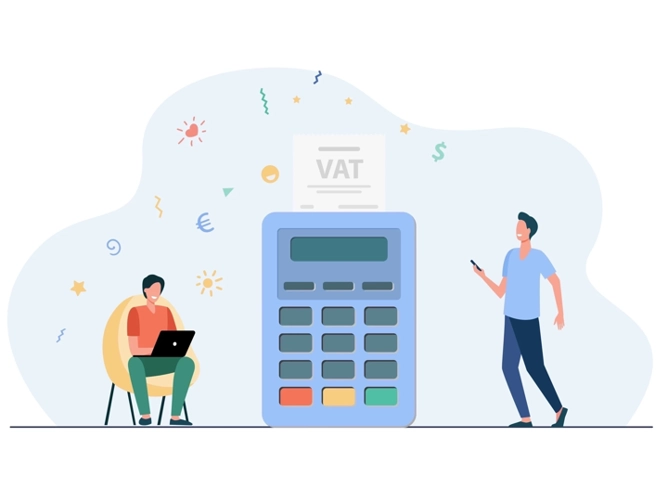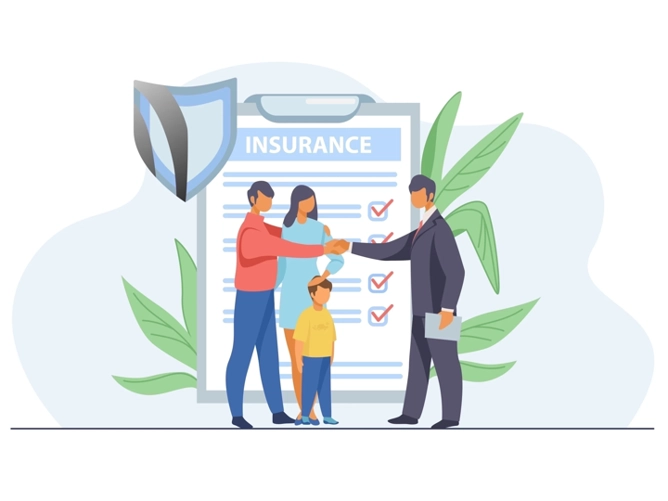
Value Added Tax (VAT) In Germany – [Umsatzsteuer 2026]
Tax laws can be confusing whether you are a resident of the country or not. However, they are essential and cannot be avoided. To stay clear of future complications related to the business’s financial obligations, residents, and foreigners should register for VAT before opening a business. This article will give you a comprehensive guide on how the VAT system works in Germany and what conditions make it obligatory for the company to register Value-added taxation.
What Is VAT?
Value-added tax, or VAT, is an indirect tax that is applied to the supply of different products and services in Germany. Based on the EU VAT directive, VAT law can be found in the Value Added Tax Act of 1980, Umsatzsteuergesetz (UStG). This law has been revised several times over the year according to the economic feasibility of Germany. Today. the Federal Parliament implements the law, while 16 federal states administer it.
In this, the businesses must add the amount of VAT to their price. Accordingly, the final user of the products will pay this type of tax. The VAT paid on goods and services varies as per the type of transaction. For this year, the standard of VAT in Germany is 19%. This rate is around 7% for various goods and services related to food, plant, books, animals, newspapers, or works of art.
The following gets exemptions from German VAT:
- Export Deliveries
- Intra-community supply of goods
- Services offered by professional groups
- Financial services
- Voluntary services
- Cultural services
All businesses must register for VAT in Germany when their turnover crosses the threshold of a particular value over the period of a year. So, whether you are a resident of Germany or not, you must apply for VAT.
What Is The VAT Number?
This number helps in identifying you at the time when you make payments in Germany. Some of the common names of VAT number includes Umsatzsteuernummer, USD-IdNr, or Umsatzsteuer-Identifikationsnummer.
The VAT number format is standard, similar to that of the European structure. Its prefix is DE, followed by 9 number. For instance, DE123456789.
When Do You Register For VAT?
VAT is generally necessary for freelancers, self-employed persons, or entrepreneurs in Germany. The tax number is sufficient when issuing invoices, but the goods sold to private individuals must be within national boundaries. Small business, which uses small business regulations, gets exemptions from the Government. So, they have a choice on whether to obtain it or not.
However, it becomes mandatory when selling products or services to EU business customers. These business engagements are known Intra-Community deliveries. Like residents of Germany, companies who want to sell goods and services in Germany must also get themselves registered for the VAT there. Even e-commerce platforms like eBay or Amazon need a VAT certificate before you start trading.
Examples for foreign companies when VAT becomes mandatory in Germany include:
- Maintains a German consignment warehouse
- Sell goods to local customers.
- Organizes events like conferences or concerts
- Uses German Amazon Fulfilment Service as an Amazon trader
VAT also gives you many benefits. You do not have to add VAT to your sales prices if you sell goods in another EU country as a supplier. But for this to happen, that customer must have a valid VAT number for identification. Another advantage is that bank transfers are free of cost if you sell within the EU through the SEPA network. Your customers do not have to use the SWIFT network for foreign transfers.
The business must imprint the VAT number on the invoice for the company carrying out the trade. This should also include the tax number on the invoice for verification. It is important to note that even if you have more than one business in Germany, you will still have one tax number, as all commercial activities of the company are evaluated as combined when applying tax.
The Registration Process Of VAT In Germany
Although companies are not forced to register for VAT, they must write for VAT payment if they sell taxable goods or services. The companies are only required to register for VAT once their annual revenue or turnover exceeds EUR 17,500. The basic steps to do so are as follows:
- Fill application form for VAT
- Add a registration certificate.
- Provide the information related to the directors of the company.
- Mention the form of organization the company is
- Highlight the activities of the company
- Show the expected turnover of the company.
After submitting all the information, the company will receive a fiscal registration number. Once this process finishes, the company can use the VAT number for transactions within the EU. Businesses and companies that supply taxable goods and services in Germany and abroad must follow similar registration laws.
If you did not register for the VAT, you can face financial damages like business operations bans, etc. Other penalties include charging a certain percentage–usually 10%–in addition to the previous due VAT with an interest of 1% per month.
The registration time for VAT varies from between different tax offices. But this time also depends on whether the applicant gives all necessary documents. You can either register for VAT on your own, or you can hire a professional person who can do all tasks for you when the business starts running.
Paying VAT In Germany
The VAT payment must be cleared before the 10th of each month. These payments are commonly known as interim payments, as the company pays the VAT through monthly or quarterly provisional returns. It is important to consider that late payments also have a penalty. The company must pay a surcharge of 1% on the following VAT payment.
How To Recover VAT In Germany?
It is only possible for the companies to recover VAT if they don’t have a domicile. This means they do not have registered offices, permanent establishments, or management in Germany.
To recover the VAT, you must submit a form and the invoices list to the local tax management authorities. For convenience, companies can also offer the documents electronically by 30th September after the refund period. Twenty-five euros is the minimum refunded amount. But this refund does not cater to the goods or services used personally.
In the case of non-EU states, when the VAT is paid, the refund can apply directly to that country. The minimum value of refunds is 400 Euros from other states, equivalent to foreign currency. Once the application is put forward to the Federal Central Tax Office, the state receives it after the German Government’s approval. It will assess the application and decide whether the applicant gets a VAT refund or if the VAT number matches that of the applicant. Accordingly, the applicant will get the decision within 15 days about their application.
In some circumstances, the German authorities do not forward the applications to recover VAT from the Member states. They are as follows:
- When the exemptions for small enterprises are applicable.
- When the applicant charges only flat-rate agricultural tax.
- When the applicant is not liable to pay the VAT.
- When the applicant trades goods and services already exempted from VAT.
Requirements For VAT Returns In Germany
Businesses need to file VAT returns according to their tax paying duration. The company can pick between quarterly or monthly tax periods for VAT. The businesses must file a preliminary return every month when the VAT surpass 7500 Euros. That is the first requirement for the company whose VAT is due in the preceding calendar.
For recently incorporated companies, this condition applies in their initial two years of presence. Companies must file preliminary quarterly returns of their net VAT of the previous year when it is below 7500 euros. However, if the VAT value is below 1000 euros, companies do not have to file quarterly returns. They can submit only annual preliminary returns.
The deadline to submit these documents is the 10th day of the month following the tax period: when the business makes the payment. Along with quarterly and monthly requirements, the companies must also file an annual recapitulation statement before 31st July of their next calendar year.
Conclusion
Whether you are a German or Non-German resident, it is crucial to note that seeking good tax and VAT advice is essential. Taking professional guidance allows you to make economic decisions related to your taxes and VAT since the tax laws change from time to time. So, to ensure that your choices do not cause you any penalty, you must seek professional aid. Nevertheless, understanding the VAT system in Germany is crucial in even hiring the right person.

Jibran Shahid
Hi, I am Jibran, your fellow expat living in Germany since 2014. With over 10 years of personal and professional experience navigating life as a foreigner, I am dedicated to providing well-researched and practical guides to help you settle and thrive in Germany. Whether you are looking for advice on bureaucracy, accommodation, jobs, or cultural integration, I have got you covered with tips and insights tailored specifically for expats. Join me on my journey as I share valuable information to make your life in Germany easier and more enjoyable.


![Best Apps to Learn German [Free + Paid]](https://liveingermany.de/images/best-app-to-learn-german/best-top-free-and-paid-learn-german-app-with-pros-and-cons.svg.webp-668w.webp)


